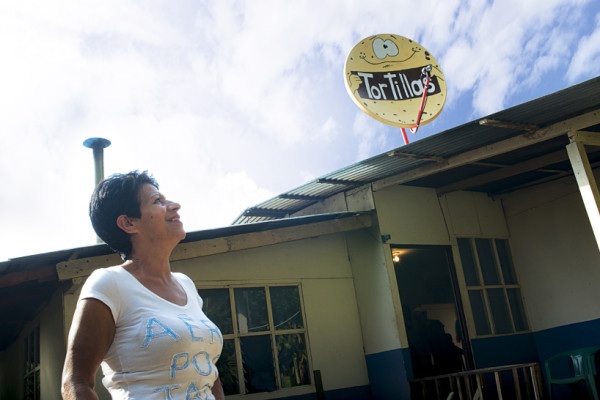This is super cool! A cable company in Costa Rica has decided to use it’s most valuable public advertising space (which is what we meant by “prime time”) not to promote itself, but to promote local, women-run businesses in the name of female empowerment.
Claro TV is the company, and ‘Signs Of Progress’ is the name of this awesome campaign seeking to give Costa Rican women a place in society that elevates their economic status.
So how does Costa Rica fare in the gender equality stakes? Some of these facts may surprise you. Costa Rica ratified the Convention on the Elimination of All Forms of Discrimination against Women, the international women’s bill of rights, in 1986, and its Optional Protocol in 2001. (The US has yet to ratify it.) Impressed yet?
An Act Promoting the Social Equality of Women became law in 1990 and after the 1995 Beijing Declaration and World Conference on Women they created a series of policies and laws protecting and elevating the status of women in Costa Rica.
In 1973 Costa Rica became one of the first countries in the world to pass legislation granting parental authority to both spouses. Although the country is predominantly Catholic, the government considers sexual and reproductive health a fundamental right. Women’s access to contraception is guaranteed by the General Health Act, and the Ministry of Health runs outreach programs to increase the use of reproductive health services, including access to contraception.
In the government, equality is not just an idea, it is law. The country’s Supreme Electoral Tribunal (TSE) now requires that a minimum of 50% of candidates for elective office be women and, significantly, that women’s names be placed alternately with men’s on the ballot for each party slate.
Education seems to be a priority for girls in the country as they outnumber boys in primary and secondary school.
When it comes to the workplace the law requires that Costa Rican women and men receive equal pay for equal work. Women are also entitled to 4 months of 100% paid maternity leave. However, that pesky wage gap is prevalent. In the formal sector, Costa Rican women earn 90% of what their male counterparts earn.
In a 2011 interview with Forbes magazine, then-president Laura Chinchilla Miranda (who was the country’s first female president) said it is a problem that women continue to receive less salary than men for doing the same job.
“Women have a higher unemployment rate in our country. When you analyze the composition of poverty, you will find that most of the families in poverty are being run by a woman. Also, a big issue is violence against women.”
While it is important to praise the positive steps Costa Rica have taken toward gender equality despite their status as a developing country, there is still work to be done which is why Claro’s campaign is kinda genius.
They decided that promoting the normally unseen and unpaid work that women do in the home deserves some much needed “air time” so that they are empowered to earn their own money and gain financial independence.
“[It is] a real social transformation in the community and in all our countries,” –former cultural minister Manuel Obregon
Now these antenna dishes boast a colorful array of local female-run startups that cater to a host of needs. Ice cream shops, hairdressers, a florist, a juice place, an egg vendor, a fruit shop and more are giving local women a public face like never before.
Local artists were called upon to help paint the dishes which have changed the landscape of suburban Costa Rican homes, and empowered women in a very innovative way.
“What did you think, that only men can? We also can!” says one woman defiantly.
Take a look at the video above, and to see more images of the businesses, click here.
Source: GirlTalkHQ


